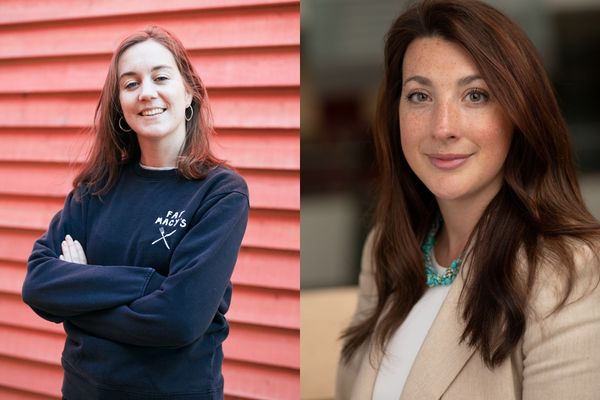Louisa Daley chats to Rachael Boraston, head of destination, UK at London Convention Bureau and Meg Doherty, founder at Fat Macy’s, to understand how food can bring communities together, and also give back.
When we think of food we often think about the flavour, the presentation or even sustainability. But do we ever consider its further impact, for example the positive impact it can have on our communities? How it brings people together, how it showcases local suppliers and how it can benefit others?
Louisa Daley chats to Rachael Boraston, head of destination, UK at London Convention Bureau and Meg Doherty, founder at Fat Macy’s to gain some insight into how London leaves this exact impact on its own community.
International and local communities
“Nothing brings people together more than the shared experience of food and flavour,” says Boraston.
“There’s a certain theatre with food, and for events especially it’s a real talking point. We all love a chef’s table or a feasting menu and sharing our taste preferences with one another. So, when you plan the catering for an event, you need to keep that in mind, particularly as we emerge from the pandemic – we are all looking for that human interaction,” she adds.
In a multi-cultural city like London, food not only brings people together – it brings communities together as well. “London is, without a doubt, one of the most multi-cultural cities out there. We have so many nationalities and spoken languages, there are so many different cultures and communities,” says Boraston.
Boraston tells me London’s venues and hoteliers like to showcase this international, community influence through food. “From our bustling Chinatown to Soho, which caters for virtually every culture – like Hoppers for Sri Lankan or Borealis for Nordic; to Brick Lane, known as Curry Mile; and Borough Market for local artisanal producers – London offers an explosion of flavour and culture,” she explains. According to Boraston, this variety of food and culture encourages international delegates to visit the city, whilst encouraging Londoners to explore different cultures.
“Food is a lovely way to unify people. It showcases cultures and communities in a very accessible and delicious way,” adds Boraston.
Wider than that, London’s food scene also brings together its local supplier community. From venues such as Hyatt Place London City East, who utilise local produce and staff, to suppliers like Waste Knot, who also use local produce alongside surplus food to create menus – London uses food to bring its whole communities and supply chains together.
Corporate social responsibility
Whilst food can bring communities together, it can also give back to them. Take Fat Macy’s as an example. The London-based restaurant and catering company, founded by Meg Doherty, simultaneously exists as a social enterprise.
“On one hand, we cater for weddings, corporate events, as well as simple lunch and breakfast drop-offs,” explains Doherty. “On the other hand, through our catering business and restaurant, we help people living in temporary accommodation move out of hostels and into their own homes. We essentially use hospitality to get people back into work.”
Since 2010, there has been a 50% rise in homelessness in England – a problem Fat Macy’s intends to tackle. So far, through its 200-hour programme, Fat Macy’s has helped 12 people gain a housing deposit and has helped six people move into their own homes. “Overall, we have worked with 60 people through the programme at various stages,” she reveals. In the 200-hour programme, trainees gain key skills surrounding food hygiene, cooking, financial planning, curating and running events, and practical work experience.
“Every time someone completes the programme, they can apply for a housing deposit grant. The grant comes from our catering profits, which are put into our charity fund that builds over time,” says Doherty.
“We also provide smaller grants throughout the programme. For example, grants to cover things such as ID, which you need two forms of to open a bank account and obtain a job.
“There’s lots of ways you can get involved and learn something, even if you don’t complete the whole programme,” she adds.
Supporting a social enterprise like Fat Macy’s should be a part of corporate social responsibility (CSR) says Doherty. “Giving back doesn’t always have to be these grand charitable gestures. It can be as easy as buying food from a business, like Fat Macy’s, that has a social purpose and social impact.
“People are recognising this, especially in London. They want to give back to the community and do something positive.
“Whether people love our food, our mission, or a combination of both – we want them to come to us for all the different reasons,” she adds.
Next time you organise your event, think about how you can bring your diverse community together and give back to areas that are in need.
Remember, food goes further than simply catering for an event, it’s now about the positive impact it leaves behind for the community.















